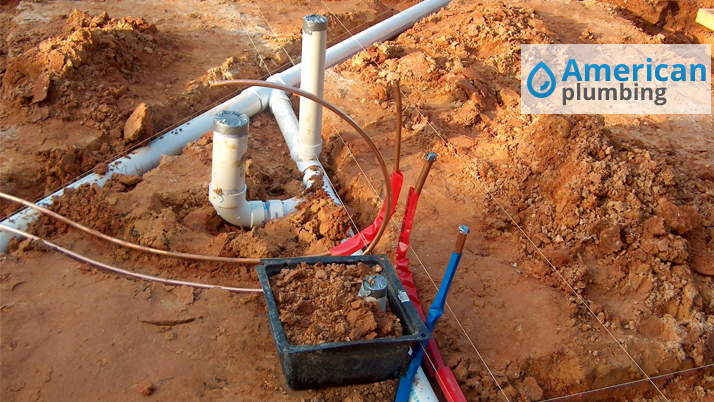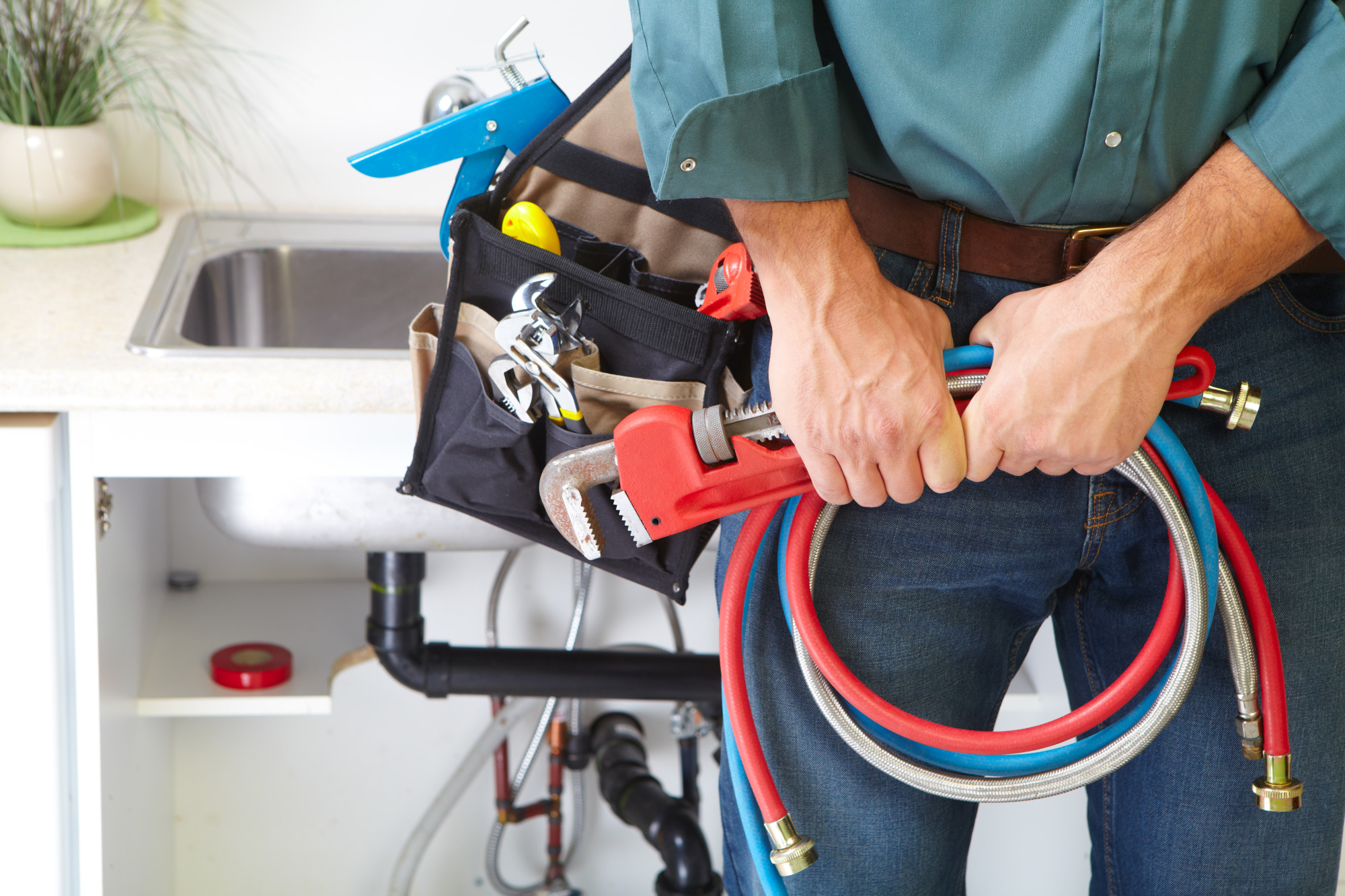Leading 5 Pipes and Home Heating Myths Unmasked
Just How to Properly Dispose of Family Waste ============================================
Proper house waste disposal is necessary for securing the atmosphere. You may already be recycling paper, plastic, glass, and steel – however what about those dangerous products lurking in your home? Improperly discarding batteries, electronic devices, and other hazardous waste can have devastating consequences. And did you recognize there are straightforward methods to minimize your single-use plastic footprint? Discover just how to lessen your environmental influence with critical composting and charitable contributions. Submerse on your own in these waste monitoring finest methods to assure you're doing your component for a cleaner, greener future.
Secret Takeaways
- Sort recyclable materials like paper, plastic, glass, and steel right into assigned bins for curbside pickup or drop-off at recycling centers.
- Securely take care of contaminated materials like paint, batteries, and electronics through specialized collection events or merchant take-back programs.
- Compost natural waste such as food scraps and yard trimmings to reduce ecological influence and produce nutrient-rich soil.
- Replace single-use plastic products with multiple-use options and choose products with very little or recyclable packaging.
- Give away unwanted yet practical items to neighborhood charities and guarantee proper recycling or disposal of harmed products.
Reusing Home Recyclables

Recycling family recyclables is a straightforward yet impactful means to decrease waste and add to ecological sustainability. Beginning by sorting your recyclables right into designated bins or bags – such as paper, plastic, glass, and metal. Several towns supply curbside pick-up or regional drop-off facilities for convenient recycling.
Don't be discouraged by common recycling misconceptions. Many things with the universal recycling symbol, commonly found under of containers, can indeed be recycled. Nonetheless, some materials, like particular plastic bags or Styrofoam, may need special delivery.
Get in touch with your regional recycling program to recognize their particular standards.
Throwing Away Hazardous Waste
While reusing is an essential action, you'll also need to correctly deal with any kind of hazardous waste in your house. Dangerous things like paint, batteries, and electronics shouldn't be included the regular trash, as they can contaminate the setting. Rather, get in touch with your neighborhood waste monitoring program to learn about specialized collection events or drop-off locations for these products.
When it involves hazardous waste disposal, it's important to follow the appropriate procedures. Many neighborhoods have household hazardous waste collection days where you can safely get rid of paint, chemicals, and various other possibly unsafe items. You could additionally have the ability to discover long-term drop-off websites for these products. Make sure to read the guidelines thoroughly and take care of the items with care to minimize the environmental effect.
In addition, some merchants, like electronic devices shops, may approve specific dangerous items for correct disposal or recycling. By making the effort to dispose of contaminated materials properly, you'll aid safeguard the atmosphere and your regional area.
Composting Organic Waste
Composting your natural waste is an outstanding means to reduce your home's ecological effect. You can turn food scraps, backyard trimmings, and various other naturally degradable products right into nutrient-rich dirt for your yard. Start by selecting an appropriate compost bin that fits your readily available space. Seek one with great airflow and drain to ensure correct disintegration.
Next off, layer your organic waste, alternating between carbon-rich 'brown' products, like dried out fallen leaves or shredded paper, and nitrogen-rich 'green' products, like fruit and vegetable scraps. Avoid consisting of meat, dairy products, or oily products, as they can attract pests and create unpleasant odors.
Routinely turn the garden compost with a pitchfork or shovel to present oxygen, and monitor the moisture degree, maintaining it damp but not saturated.
With regular care and the ideal composting methods, you'll soon have an abundant, natural garden compost prepared to nurture your garden. Composting is an easy, sustainable way to reduce waste and produce valuable dirt amendments for your home.
Decreasing Single-Use Plastics
Past composting organic waste, decreasing your household's reliance on single-use plastics is an additional impactful action in the direction of sustainability.
Seek opportunities to replace non reusable plastic products with multiple-use alternatives, such as carrying your own water bottle, buying bag, and takeout containers.
Buy plastic options like glass, metal, or bamboo for everyday items. Go with products with very little product packaging or packaged in recyclable materials.
Sign up with community efforts that advertise plastic-free living, such as regional coastline cleanings or zero-waste difficulties. These cumulative initiatives assist elevate understanding and drive adjustment in your neighborhood.
When purchasing, bring your own reusable bags and decline plastic bags when feasible. Choose to buy items with very little or no plastic product packaging, and try to find products made from recycled or eco-friendly products.
Every plastic item you refuse or change makes a distinction in minimizing waste and shielding the setting.
Giving Away Undesirable Items
When you have things you no longer require, think about contributing them rather than tossing them away.
Many regional charities and companies accept a variety of home goods, from clothing and furniture to electronic devices and publications.
Discover what and where you can give away to provide your undesirable properties a brand-new life.
What to Give away
Contributing unwanted products is a superb means of giving brand-new life to household items while decreasing waste. Take into consideration passing on delicately utilized apparel, publications, playthings, and electronics to charitable organizations in your community.
Prior to donating, acquaint yourself with the donation standards to ensure your things are qualified. Numerous charities have particular criteria for the condition and type of donations they approve.
When choosing things to contribute, take a crucial take a look at their top quality. Clothing should be tidy and devoid of discolorations or damages. Books must have undamaged backs and web pages. Toys and electronic devices need to remain in working order.
Harmed or damaged things are often unusable and may wind up in land fills, so it's finest to reuse or throw away them appropriately.
Where to Give away
When you have actually determined what products you can donate, you'll require to find the best organizations to obtain them.
Contribution centers are a wonderful option, as they commonly approve a vast array of products, from clothing and house goods to electronic devices and furniture. Look for local charities, nonprofits, or area organizations that run donation facilities in your location. These facilities usually distribute the contributed things to those in demand or sell them at deeply affordable rates to support their programs.

Another option is pre-owned stores, which are businesses that offer delicately used things. While they might decline as wide a range of donations as donation facilities, they can be a convenient means to pass on things you no more demand.
Research reliable secondhand stores in your community and ask about their contribution policies. Be sure to follow their standards to ensure your contributions are approved and can be put to excellent use.
Appropriate Disposal of Electronics
Appropriately getting rid of your digital gadgets is crucial to guarding the atmosphere and stopping data violations. Connect to regional e-waste reusing programs to find approved drop-off places that'll responsibly handle your old computers, phones, and various other electronics. Several communities offer totally free electronics recycling occasions, where you can safely dispose of e-waste and ensure it's refined in an eco-friendly fashion.
When it involves digital recycling, it's important to comply with e-waste guidelines. Don't just throw your devices in the trash, as they may have dangerous products that can contaminate the dirt and groundwater. Rather, research your local guidelines and locate a licensed recycler that can properly dismantle and reuse the parts. This helps reduce the ecological influence and recuperates valuable sources, like rare-earth elements, that can be reused.
Safely getting rid of your electronic devices is a small but meaningful step in the direction of a much more sustainable future. By taking the time to recycle responsibly, you're doing your component to safeguard the earth and protect against information breaches.
Frequently Asked Inquiries
Can I Throw Batteries in the Normal Trash?
No, you should not throw batteries in the routine trash. Batteries consist of dangerous products that can leakage and contaminate the environment.
Instead, you need to reuse your old batteries. Lots of merchants and municipal recycling programs approve used batteries for proper disposal.
By reusing your batteries, you can aid protect the setting and assure the dangerous materials are managed safely.
Put in the time to find a battery recycling option in your area.
Exactly how Do I Take Care Of Expired Drug?
Don't just throw expired drug in the garbage.
That's harmful for the setting and others.
Instead, try to find a drug repossess program in your area.
These programs permit you to safely dispose of unwanted or expired pills, liquids, and various other drugs. near me plumber
If a repossess option isn't readily available, call your regional pharmacy or doctor – they can assist you on the correct, risk-free disposal of your drugs.
What Do I Make With Used Food Preparation Oil?
Don't put used cooking oil down the tubes – it can clog pipelines and hurt the atmosphere.
Instead, let the oil cool, after that put it right into a sealable container.
Seek local oil reusing programs or take it to a hazardous waste center.
Environment-friendly disposal is essential, so try to recycle the oil ideally.
This simple action assists protect the world and keeps your pipes running efficiently.
Is It Okay to Flush Wet Wipes Down the Bathroom?
No, you need to never purge wet wipes down the commode.
Even if they're identified as 'flushable,' wet wipes can obstruct your pipes and create major pipes problems.
Rather, think about using reusable towel wipes or look for environmentally friendly toilet paper choices.
Dealing with wet wipes appropriately is essential to stop blockages and secure your home's plumbing.
How Should I Eliminate Old Furniture?
When eliminating old furniture, consider furniture donation or recycling choices. Lots of charities and companies approve utilized furnishings in great condition, providing a brand-new home.
If the furnishings is worn or damaged, explore local recycling programs that may be able to repurpose the products.
Stay clear of merely leaving furniture on the curb, as this can develop an eyesore and might also violate neighborhood regulations.
Do your research to guarantee your old furnishings is gotten rid of properly.
Final thought
To decrease your ecological impact, remember to reuse all home recyclables,
appropriately deal with contaminated materials, and compost natural materials.
Reduce single-use plastics, give away unwanted products,
and warranty electronic devices are recycled properly.
By following these straightforward actions, you can contribute to a much more lasting waste administration system.